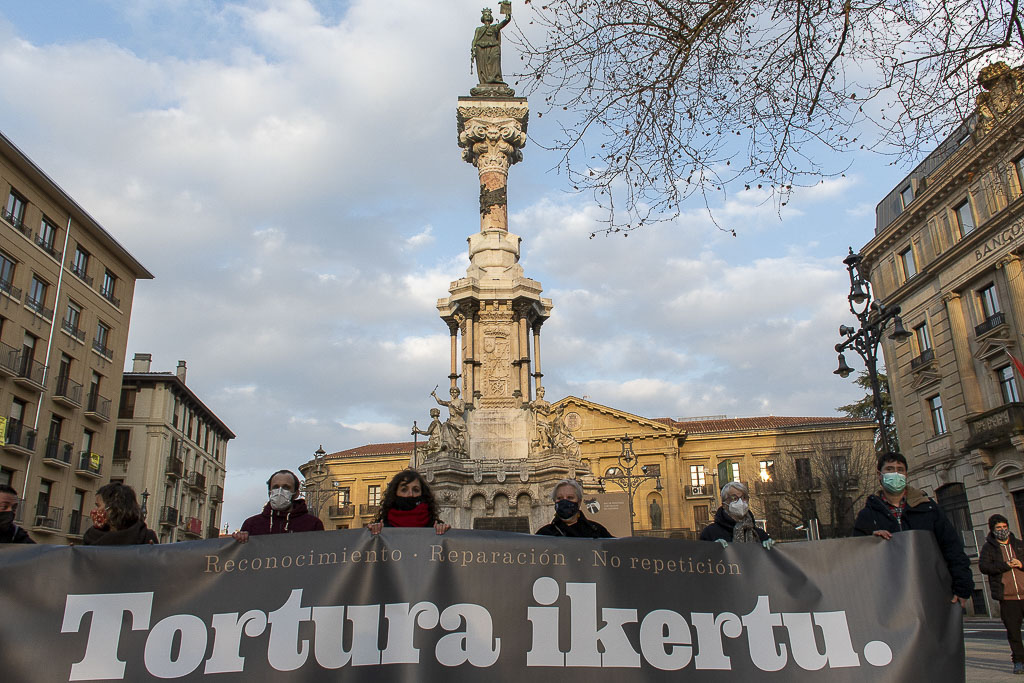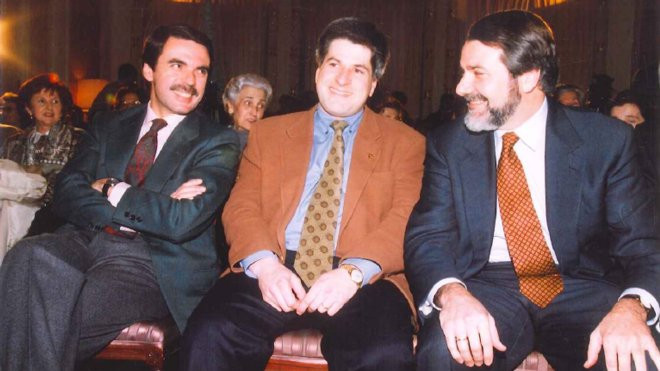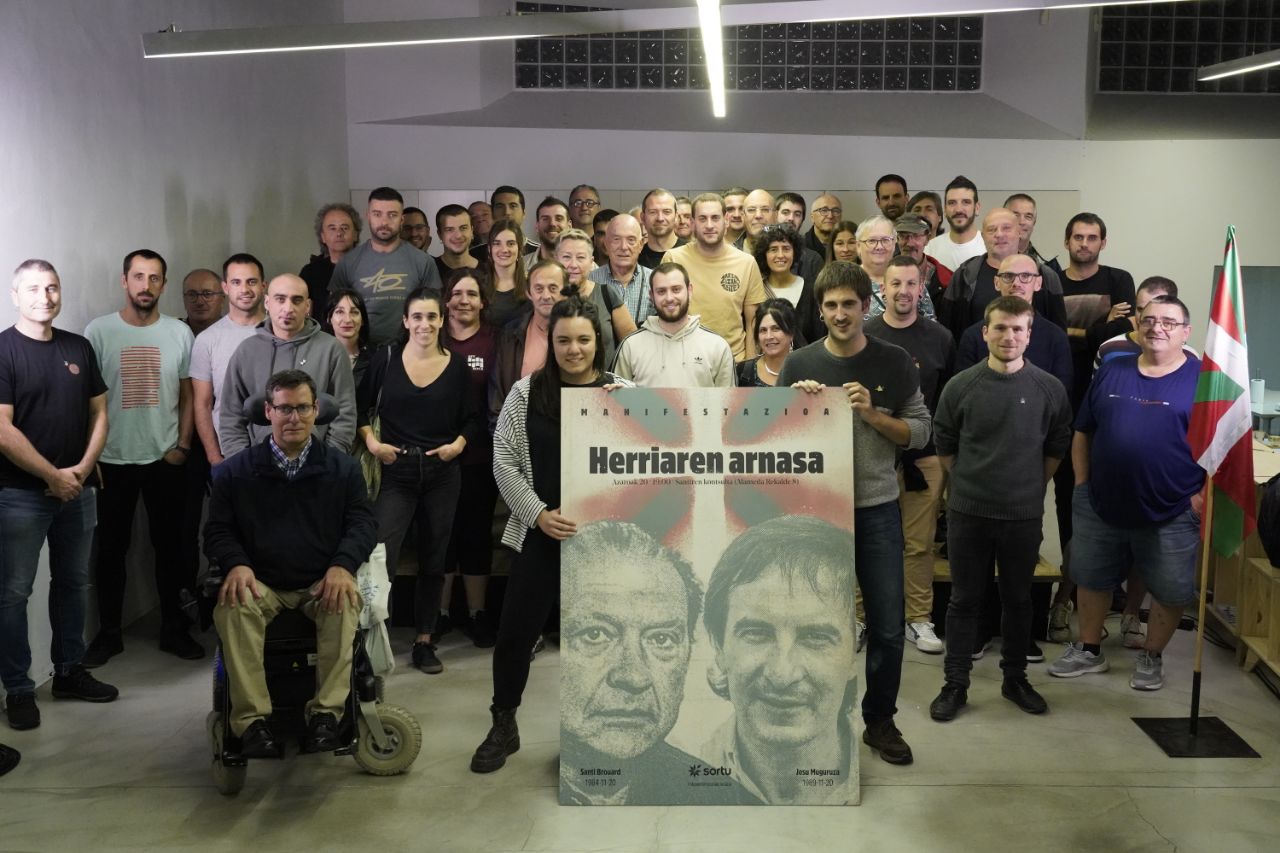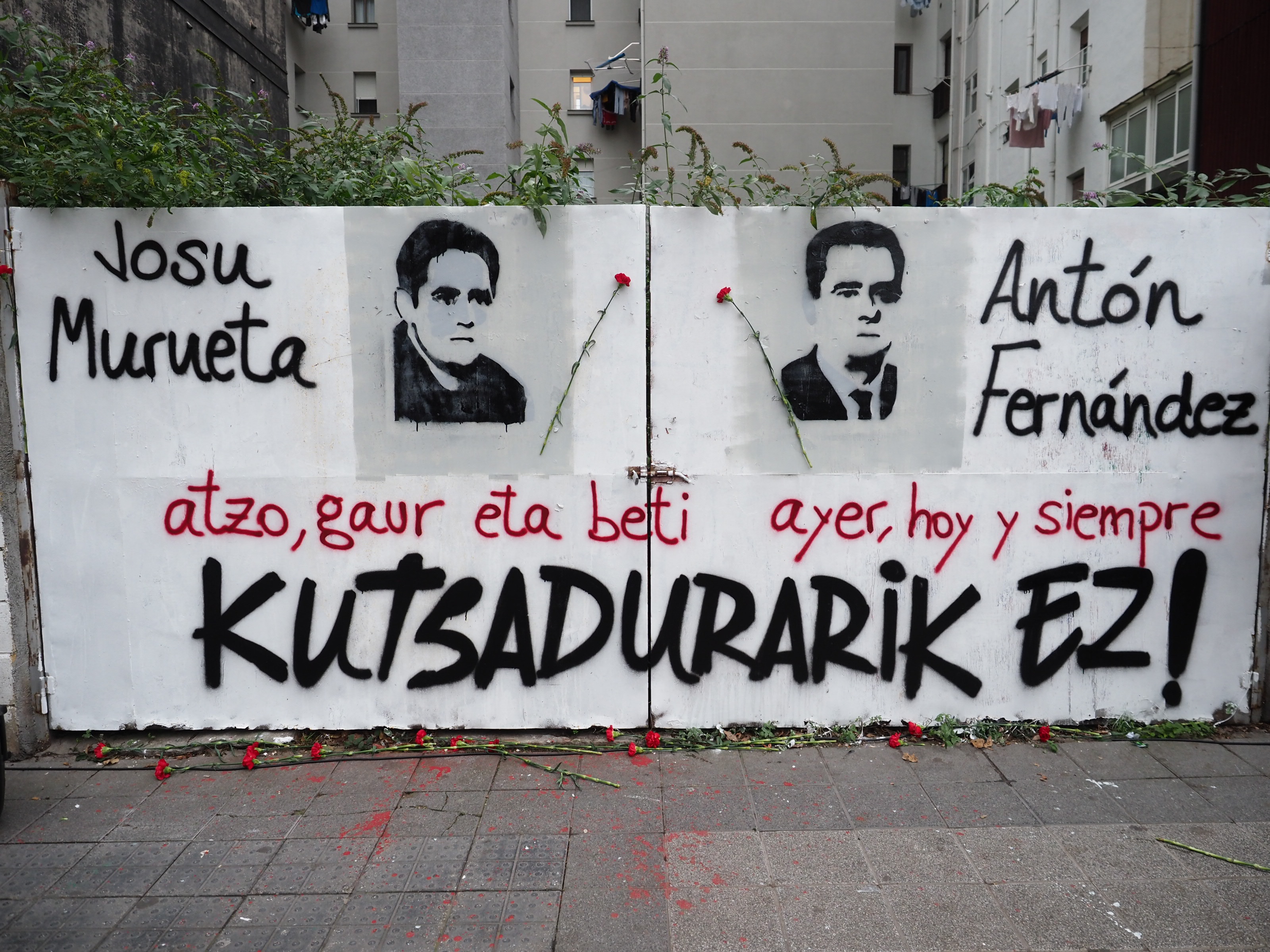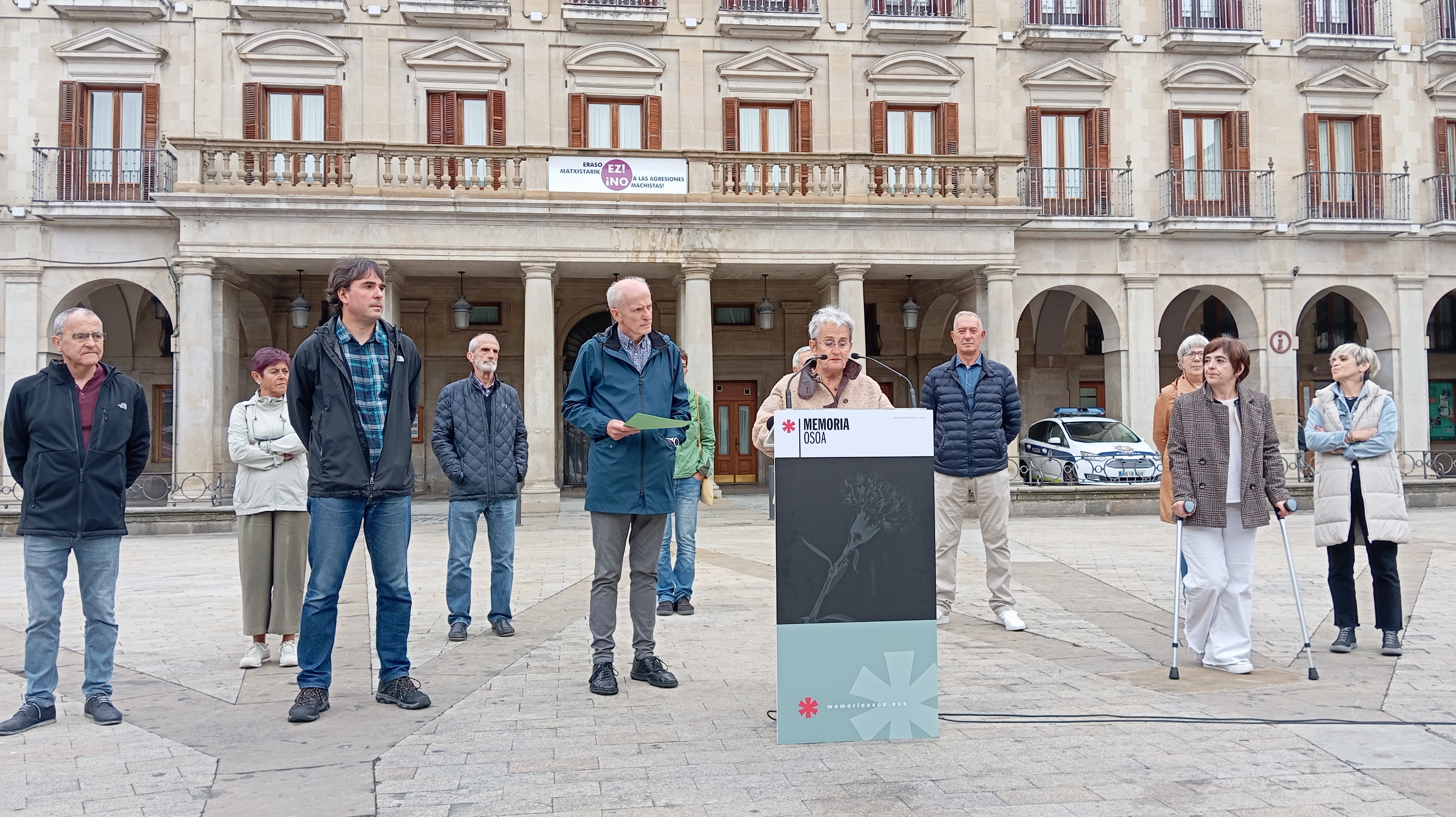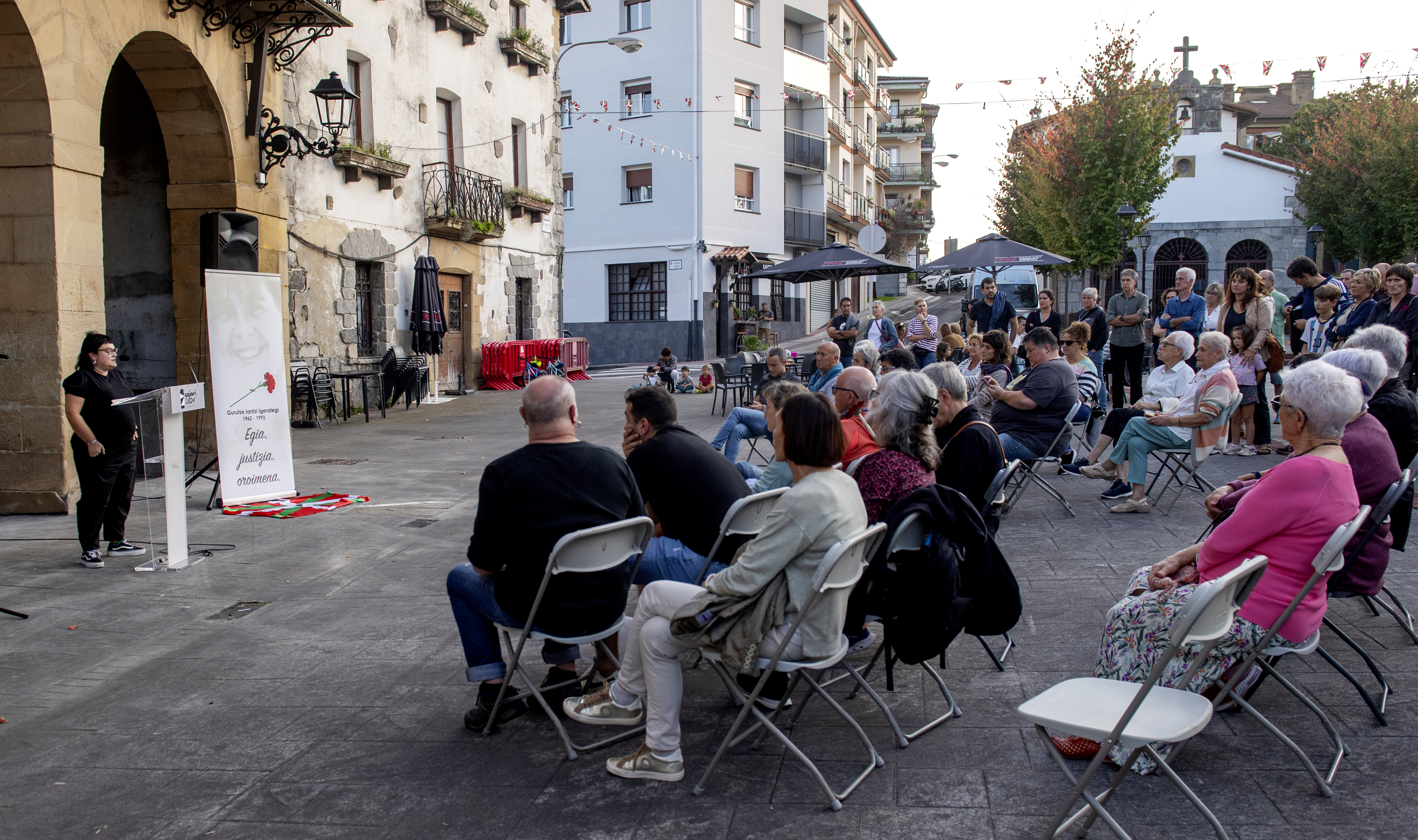“ETA violence has been a political ammunition for PP and PSOE”
- After interviewing Maixabel Lasa, it occurred to journalist Álex Romaguera to write a book on armed actions in the Spanish state. A decade later he published Victimes in so de pau (Victims in the spirit of peace). In Catalonia he has chosen the prison of La Model, symbol of repression, to dialogue with ARGIA.
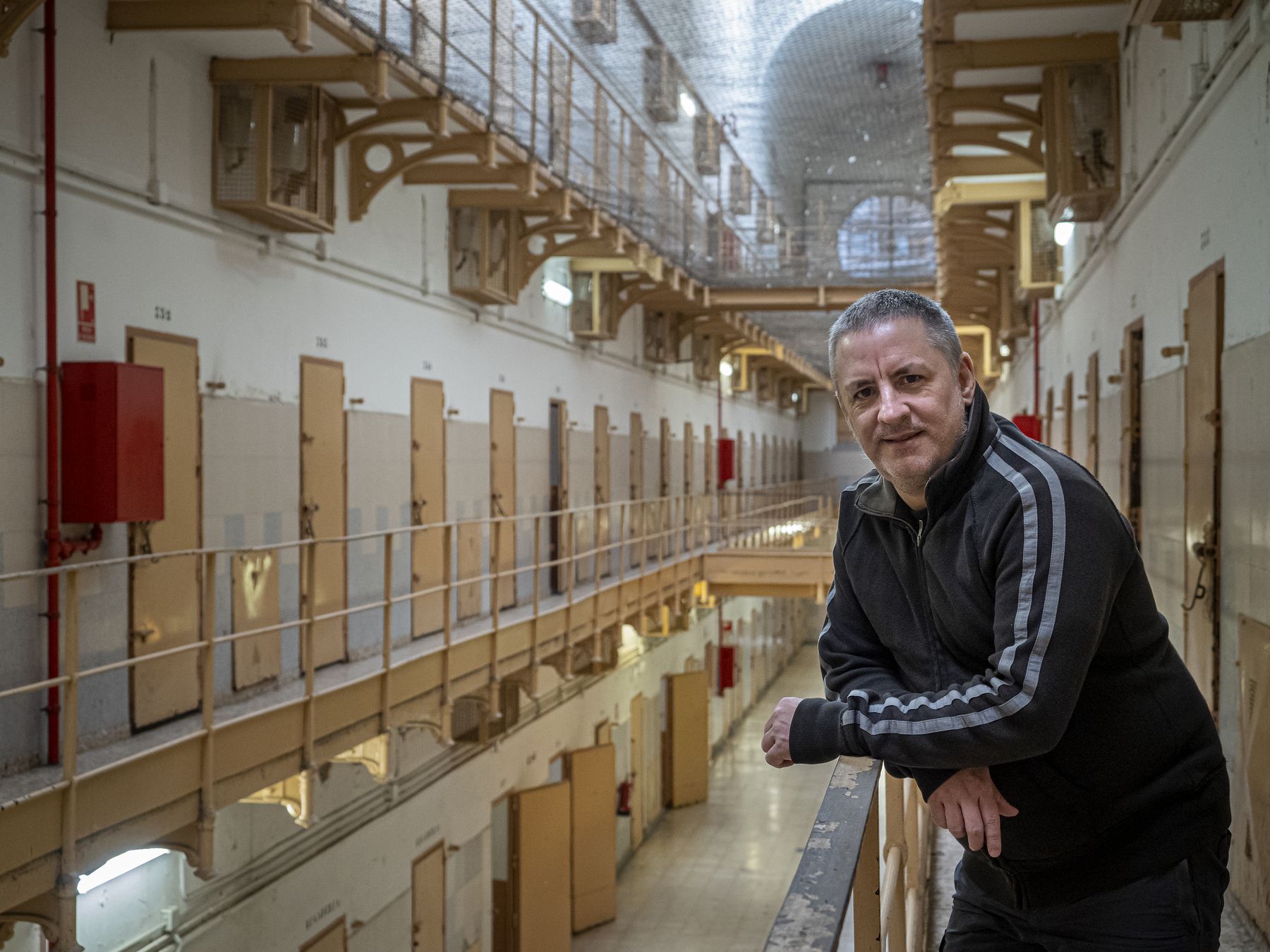
Where is the Victimes book born in so de pau?
Ten years ago, I interviewed Maixabel Lasa. Then I met Robert Manrique, who was the victim of the Hipercorridor attack, and I realized that the subject was challenging me. I started to meet a collective with a totally unequivocal, stereotyped image, as plural as the people who make it up. Disregarding the pattern of hatred and inquisition, as well as being families of victims of armed acts in the Spanish State, I was interested in the testimonies that have defended the peace process, equality and justice.
You have received 15 testimonies. Has the choice been difficult?
At first, I prepared a list of 50 or 60 people. The main criterion for the final selection has been to collect the testimonies of those who have lost someone in the family as a result of armed acts. I have based myself on three contexts that define historiography: from 1968 to 1975, from 1975 to 1982 and from 1982 to today. It includes the armed actions of the rebels, State apparatus, prison officials, extreme right-wing members, etc. And, as I said, I wanted to collect testimonies that, fleeing from the polarized narrative, prioritize respect for the other. This moral and ethical category seems to me to be unrestrained, because it shows that in the Spanish State during these 50 years violence has had various forms.
What is the guiding thread of
the book?The victims' starting point for peace. Peace is not just a society without violence: everyone argues that peace, for all victims to feel respected, is impossible to build a fairer society. They are all opposed to the war in Iraq, to refugee policies or to the Mordaza Act. Moreover, in many cases they were not excessively politicised families, but when they have been victims of violence they have committed themselves to society. And above all, they accept to be “victims”, but claim to be survivors.
You have started the book with the figures of victims of this type of violence in the Spanish State, highlighting the gaps in history.
Yes, counting all the victims identified from the first ETA action to the present, there are about a thousand. Most are caused by ETA. The problem is that we only know the official story and forget that, for example, in the Transition there are 500 unresolved deaths. It is therefore evident that the crimes of the State apparatus have been hidden or, at least, have not been properly tried.

According to this, it can be said that the Transition was not as “peaceful and exemplary” as they have sold, right?One of the most relevant conclusions is that the Transition
created a model of oblivion, subsequently denounced by UN rapporteurs, Amnesty International and Human Rights Watch. And that structure of oblivion has allowed the state apparatus to remain unpunished against dissidents. Therefore, far from being exemplary, there was no transition. The democratic transition was the continuation of the model that guaranteed the violation of rights.
He says that there are two mediators among the victims of political violence.
Totally. There are first- and second- or third-class victims. It is not the same to be a senior State official as a person with a particular political affiliation. While the victims who were part of the constitutionalist political parties have been recognized, those who opposed the established order have been undervalued and despreciados.Estas secondary or tertiary victims have therefore suffered a double victimisation: in addition to the death of a family member, they have suffered the contempt of the institutions.
“We forget that in the Transition there are 500 unresolved deaths”
If public institutions classify primary and secondary victims, can peace be guaranteed?
That will come later. Civil society action is essential for public institutions to act in defence of citizens’ rights. In Euskal Herria, for example, the Social Forum has been key, including Lokarri, which has made the Aiete Conference and many others possible. Civil society has mobilised public institutions.
Robert Manrique has been a travel companion to the book. It has often denounced that the victims of ETA are used for political interests. Is this feeling shared between your interviewees?
Of course. There are a number of shared characteristics among the interviewees. On the one hand, regardless of each other ' s trajectory and political attitude, everyone claims the truth, justice, reparation, recognition and guarantee of non-repetition for all victims. And on the other hand, they all deny the use of violence. Therefore, yes, this feeling is common among apparently antagonistic profiles.
“Fleeing from the polarized narrative, I wanted to collect testimonies that prioritize respect for the other”
A couple of years ago we interviewed Rosa Lluch in ARGIA. He claimed that he was more than Ernest Lluch's daughter. From the polyhedral point of view advocated by Ane Muguruza, those who know her for being the daughter of a ETA victim, because they look at her life from a single angle. This is
also common: some want to remake their lives, with the biographical baggage that has marked their lives, of course, but fleeing the chronification of victimization. Another paradigmatic case is that of Sara Buesa, for example. He has always been clear that he wants to lead an independent life beyond being the daughter of Fernando Buesa. It is clear to the victims that they have a humanizing role, but that they cannot be the subject of political conflict.
What environment did you experience during the interviews?
It's a topic to be treated very carefully, it's a surgical and delicate milestone. I had to get into the realm of emotions and for that I received the advice of the psychologist Sara Bosch. My goal was not to fall into the morbid side of the conversations and he gave me the keys to managing the interviews.
How did you structure the talks?
I based my dialogues on the impact of crime, on the process of struggling resilience of people and on the need to bring positive values to the community. The tertulias were four or five hours, eating between them. Then I allowed the victims to read and correct my writing.
“One of the most obvious consequences is that the Transition created a model of oblivion”
What was the answer?Some amendments
were made in some section, especially in the statements extracted from the viscera, seen in cold weather, as they were not considered appropriate. In addition, some of the interviewees were interested in meeting others. Someone felt some kind of annoyance.
For example? Guillem Agulló's family,
but then they saw him well. All families have been comrades and mutual agreement has been an interesting process.
Once the book has been written, what do you think is the key to ensuring the reparation of all victims?The change of cultural
paradigm is essential to change the political and economic system that promotes individualization and competitiveness. Violence is a response to conflict, so if the causes of conflict are not resolved, violence will rise again. Of course, it takes time, because change has to be profound.
You have given birth to the book on the 10th anniversary of the Declaration of Aiete. What do you think of the statements by Arnaldo Otegi and Arkaitz Rodríguez?
I found it positive for the construction of peace, but it must be borne in mind that this is the only European case in which one party has ended the armed action and the opposition of the other has remained intact. Therefore, it is a paradigmatic fact: As ETA’s violence has been a political ammunition for the PP and the PSOE, for them the peace process remains bad news, because they have no reason to justify the repression. But I have more confidence in civil society.
Finally, what is your learning process with the book?
To burn the truth, I've been raised by the ethical-moral doubts that I'm sharing over the last few days with those around me. When I spoke to Maixabel Lasa ten years ago, he told me how well our parents did when they touched on the murder of Carrero Blanco. Well, I've met her granddaughter, and how am I going to tell her that I celebrated her when they killed her grandfather? It's a debate that society has to face: if violence is bad, and if we don't want first and second victims, shouldn't there be first- and second-class murders, right? Or yes? Some say that the murder of Carrero Blanco led to the end of the Franco regime. All right, but then we're relativizing. I sometimes think that if before signing the Azores Pact to invade Iraq they had taken José María Aznar Bagdad, and he had known the atmosphere and the people there, would he have signed the pact when he returned?
2008an Fernando Grande Marlaska epailearen aginduz atxilotu zutenean Ibai Azkonak pairatu zituen torturak aitortu ditu Nafarroako Gobernuak. Euskalerria Irratian, pauso honek suposatzen duena azaldu du Azkonak.











